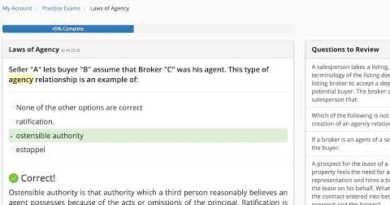What Happens to Directors When a Company Is Struck Off?
A company can be struck off the register of companies (in England and Wales; Companies House) for a number of reasons. These might include dissolution, failure to file documents and returns as required, or a form of insolvency such as liquidation or administration where the Company is in financial difficulty.
If a business is no longer actively trading and has no assets or debts, a voluntary striking off might be an appropriate way to end the burden of filing tax returns, annual statements, and other statutory requirements when maintaining a limited company’s status as a legal entity.
However, if mishandled, voluntary and compulsory strike offs; insolvency and dissolutions can have catastrophic personal consequences for directors, including unlimited fines, disqualification, and even imprisonment.
If you’re a director considering applying for a voluntary strike off — or you’ve received a compulsory striking off warning or notice — it’s essential you properly and thoroughly evaluate your legal position.
Significantly, it can often be mistaken that a company will be automatically dissolved if a Director/Shareholders do nothing.
Whilst that might happen, any creditor or company with a claim against that company can object to voluntary strike off and/or dissolution of a company.
What Is a Voluntary Strike Off?
As a director or shareholder owner in a limited company, there are numerous reasons that you may want to dissolve it voluntarily.
Despite the negative connotations of a company being “struck off”, there are plenty of circumstances where a registered company simply outlives its usefulness as a legal entity or ‘person’.
Common motives for shareholder owners and directors seeking to wind up a limited company voluntarily include the following:
- The Company is registered but never commenced trading
- The Company is dormant
- The Company has fulfilled its purpose
- There has been a retirement of shareholder owners/directors
- There are no plans for succession; or
- There has been a restructuring.
Registering a limited company is a relatively straightforward process.
Voluntarily striking off a business is also painless — if the company never began trading.
However, if the limited company is — or was — a going concern, the voluntary strike off process is more complicated.
As a firm, we don’t act in voluntary strike off processes, but we do become involved where there is a dispute and/or debtors are attempting to use this type of process to avoid liability.
Voluntary Company Strike Off Process
For shareholder owners or directors to successfully strike off a limited company voluntarily, the following conditions must be met under Part 31 of the Companies Act 2006.
- The company must not have traded or changed names for three months prior to submitting a voluntary striking off application
- No threat of insolvency or liquidation
- No repayment agreements with creditors (e.g., Company Voluntary Arrangement)
Your company must meet the above obligations for voluntary dissolution to be a viable option.
If so, the process is as follows:
- If the company has more than one director, a majority must sign Form DS01. The application can also be completed online. For example, in a limited company with three directors, two must sign.
- Compulsory notification of individuals and entities of the striking off application (copies of the application must be sent within 7 days). Examples of whom notice must be sent to include:
- Shareholders or company members
- Employees
- Directors who have not signed the application
- Creditors (including banks, guarantors, landlords, suppliers, and former employees still owed money)
- HMRC and the Dept. of Work and Pensions (DWP)
- Employee pension fund managers or trustees
- You must also send a notice to anyone who becomes a director, creditor, member, or employee of the company after submitting the application.
Failure to follow the statutory notification process is an offence — you could face significant fines or up to 7 years in prison.
- Once you submit Form DS01, Companies House will examine the application. If the application is accepted, it will:
- Register the application and make it part of the company’s public record
- Send an acknowledgement notice to the address on the DS01 form and the company’s registered address
- Publish a first notice in The Gazette and attach it to the company’s public record
At this point, it is still possible to withdraw the application by filing Form DS02 — but you must act swiftly.
If the company begins or resumes trading, enters insolvency or makes repayment arrangements, or becomes ineligible for numerous other reasons, you must withdraw the application or face severe consequences, such as unlimited fines, up to 7 years imprisonment, and disqualification from holding a company directorship for up to 15 years.
If no individual or entity objects to the company’s voluntary striking off notice in The Gazette after two months of publication, the Company House registrar will likely proceed with dissolving the company.
The company then ceases to exist as a legal entity, and a final striking off notice is published in The Gazette.
If the company had any assets at dissolution, they become property of the Crown.
Who Can Object To Striking Off A Limited Company — and What Happens Next?
Under the Company Act, 2006, “any person to show cause” why striking off “should not be done” can object to a limited company’s dissolution within two months of the first Gazette notice.
In practice, the individuals and entities most likely to object to a voluntary striking off are similar to the list above of everyone who should have been sent a copy of the DS01 application.
- Shareholders or company members
- Employees
- Directors who have not signed the application
- Creditors (including banks, guarantors, landlords, suppliers, and former employees still owed money)
- HMRC and the Dept. of Work and Pensions (DWP)
- Employee pension fund managers or trustees
We often find that some ill-informed shareholder owners and directors may see voluntary striking off as a ‘magic bullet’ to personally avoid outstanding debts and other liabilities by dissolving a limited company.
We become involved in preventing these processes from being used inappropriately.
Wilfully attempting to strike off a company that doesn’t meet the legal requirements can amount to civil fraud and/or conspiracy— and rarely works out in the directors’ or shareholder owners’ favour.
Recent government efforts have made objecting to a company being struck off easier than ever.
Company House offers a free service where anyone can search for a registered business by name and receive email notifications if any changes — such as a voluntary or compulsory striking off application — are made to the company’s public record.
Creditors are fully aware that the striking off of a company makes recovering unpaid money much more challenging.
Consequently, many creditors and suppliers monitor the company registry as a matter of routine.
We do.
Additionally, if your company is active or has outstanding debts, voluntary striking off is not a legal option.
Rather than risk the considerable consequences of trying to avoid your obligations, consider more viable options like coming to commercial payment arrangements or liquidation.
What Is a Compulsory Strike Off?
A third party — typically Companies House itself — can petition for a limited company’s closure and striking off from the Company Registry.
Private limited companies — and their directors — have numerous legal obligations.
Many relate to fellow directors and shareholders, such as abiding by the Articles of Association.
However, a registered company must also:
- File timely accounts
- File annual statements
- Appoint Directors
- Pay taxes and fees
- Meet other legal requirements
- Appoint directors
- Continue trading
If a company fails to meet the above requirements, Companies House may move for a compulsory strike off at its discretion.
First, Companies House must send two formal letters to the registered business address warning of involuntary dissolution of the limited company.
If Company House gets an unsatisfactory response — or none at all — it will proceed to issue a first striking off notice in The Gazette.
The consequences of failing to respond to a compulsory striking off notice are often dire — particularly for a company that’s actively trading.
If Company House receives no response, it will proceed with striking the business from the Company Registry.
The consequences are immediate and potentially catastrophic:
- The company ceases to exist as a legal entity
- The dissolution is irreversible — even if an error was made
- All company assets — including cash in the bank and property — become bona vacantia (ownerless property) and forfeited to The Crown
- Directors may be investigated for fraud or misconduct leading to the involuntary dissolution of the company
If you’re a creditor and are involved in a joint venture, or are owed sums by a company at risk of strike off, you should seek expert legal advice immediately.
Even if you think the company has no current value, assets, or liabilities, the consequences of being wrong can be devastating. There may be other options you’re unaware of.
Consequences for Company Directors When a Company Is Struck Off
One of the primary benefits of doing business as a limited company is the protection it offers directors and shareholder owners from personal liability.
But, for directors and shareholder owners, overestimating the limits of personal liability or taking corporate protections for granted is done at your peril.
The Companies Act 2006 c.46 states that:
6 (a) the liability (if any) of every director, managing officer and member of the company continues and may be enforced as if the company had not been dissolved, and
(b) nothing in this section affects the power of the court to wind up a company the name of which has been struck off the register.
Directors and shareholders cannot evade personal liability by having a company struck off — whether voluntarily or compulsory.
Aside from the business forfeiting any assets like cash, stock, or property held by the company to the Crown as Bona Vacantia, personal consequences of striking off for directors may include:
- Disqualification from holding a company directorship for up to 15 years
- Personal responsibility for company debts
- Access to future credit and capital will likely be severely restricted
- Irreparable harm to supplier and customer relationships
In cases of fraud, directors may face:
- Unlimited fines
- Extensive civil liability
- Being charged with a criminal offence (or offences) and sentenced to numerous years in prison
Even if a director’s or shareholder owner’s actions (or inactions) fall short of fraud, a finding of “unfit conduct” can also have severe and lasting consequences.
Additionally, Directors can face personal liability where:
- There has been malfeasance (they have acted in breach of their duties to the Company)
- The Company has been engaged in wrongful trading
- Where creditors have claims against the Director personally. For example:
- When there has been any misrepresentation
- The Director(s) have personally guaranteed sums
- Where there has been any degree of breach of trust
Under the right circumstances, having a company struck off isn’t an inherently bad thing.
However, for the above reasons, striking off a Company is unlikely to be a panacea for debtors seeking to avoid liabilities.
Creditors have significant options to look behind the Company and to pursue Directors personally.
Given the potential pitfalls and severe consequences of getting it wrong, if you’re in a dispute with third parties and/or are concerned about the risk of strike off of a Company in circumstances where something is not quite right, you should obtain expert legal advice from a specialist litigation team to see if your position can be better protected and/or improved.
What Can You Do To Avoid a Compulsory Strike Off?
If you and your fellow directors or shareholder owners conduct your business in accordance with the law, there’s little chance you’ll ever face a compulsory strike off notice or involuntary dissolution of the company.
If you receive a threat of compulsory strike off, such as a formal letter or notice such as a Statutory Demand, you must act immediately — time is of the essence.
It might be possible for us to assist you in responding to prevent more severe outcomes as above.
It is not only directors and shareholders who may object to a company’s striking off.
Creditors, employees, and parties engaged in litigation with the business also frequently object.
Striking off makes it much more difficult for anyone owed monies by the company to recover the debt.
Individuals or entities with legitimate claims against the business may apply for a court order to restore the company even once removed from the register.
We also assist companies in being restored to the register of companies at Companies House.
Frequently Asked Questions
What Is the Difference Between a Company Being Dissolved and Struck Off?
The striking off process leads to the dissolution of a limited company. If a company is successfully struck off, it is then dissolved and officially ceases to exist as a legal entity. Any company assets forfeit to the Crown as bona vacantia. For creditors, if a company is dissolved, it no longer exists. That can indicate recovery prospects are low unless a Director has manufactured that outcome for their own purposes and benefit. In this case it might be possible to prevent dissolution and/or to pursue the Director personally.
What Are the Effects of a Company Being Struck Off?
If striking off is successful, a limited company ceases to exist as a legal entity. The starting point is that any assets are forfeited to the Crown as bona vacantia. A voluntary or compulsory striking off can result in an investigation of directors and shareholder owners. If wrongdoing is found, they may face unlimited fines, prison time, and a 15-year ban on holding a directorship. Striking off also makes it much more difficult for creditors to recover outstanding debts.
In insolvency situations such as liquidation or administration, where a company is wound up, the company will also be struck off the register of companies but will face additional investigation by the Official Receiver and/or an Insolvency Practitioner, including into the conduct of the Directors prior to the insolvent event.
Need Advice? Contact Helix Law.
If you’re a director or shareholder owner and are in a dispute, you might be considering strike off or insolvency as a way to avoid liability.
Whilst that could be viable and workable, there might be unforeseen dangers you are not aware of, including possible personal repercussions and risks to you personally. We can likely assist you.
If you are a creditor owed monies by a company at risk of being struck off you should obtain legal advice.
It is fairly rare that there are no additional alternative approaches that might improve and protect your position commercially speaking.
You might be able to prevent strike off, you might have claims against Directors/Shareholders personally, or you might have claims against third parties such as professional entities who failed to advise you and who have left you in a position where you are carrying risk of loss.
In any/all of these situations and circumstances, we can assist you.
We are a firm of expert commercial litigation solicitors. At Helix Law, our team has extensive experience working across the country in dealing with opponents seeking to prevent, avoid or pursue recovery. We act nationally.
Contact Helix Law for a no-obligation consultation today. We aim to respond to all queries within an hour.






![Passing the NMLS Exam - A Quick Overview of RESPA for the NMLS Exam [older version-info still valid]](https://americanlegaljournal.com/wp-content/uploads/2022/06/ick-overview-of-respa-for-the-nmls-exam-older-version-info-still-valid-KU7IKMY3qF0-390x205.jpg)